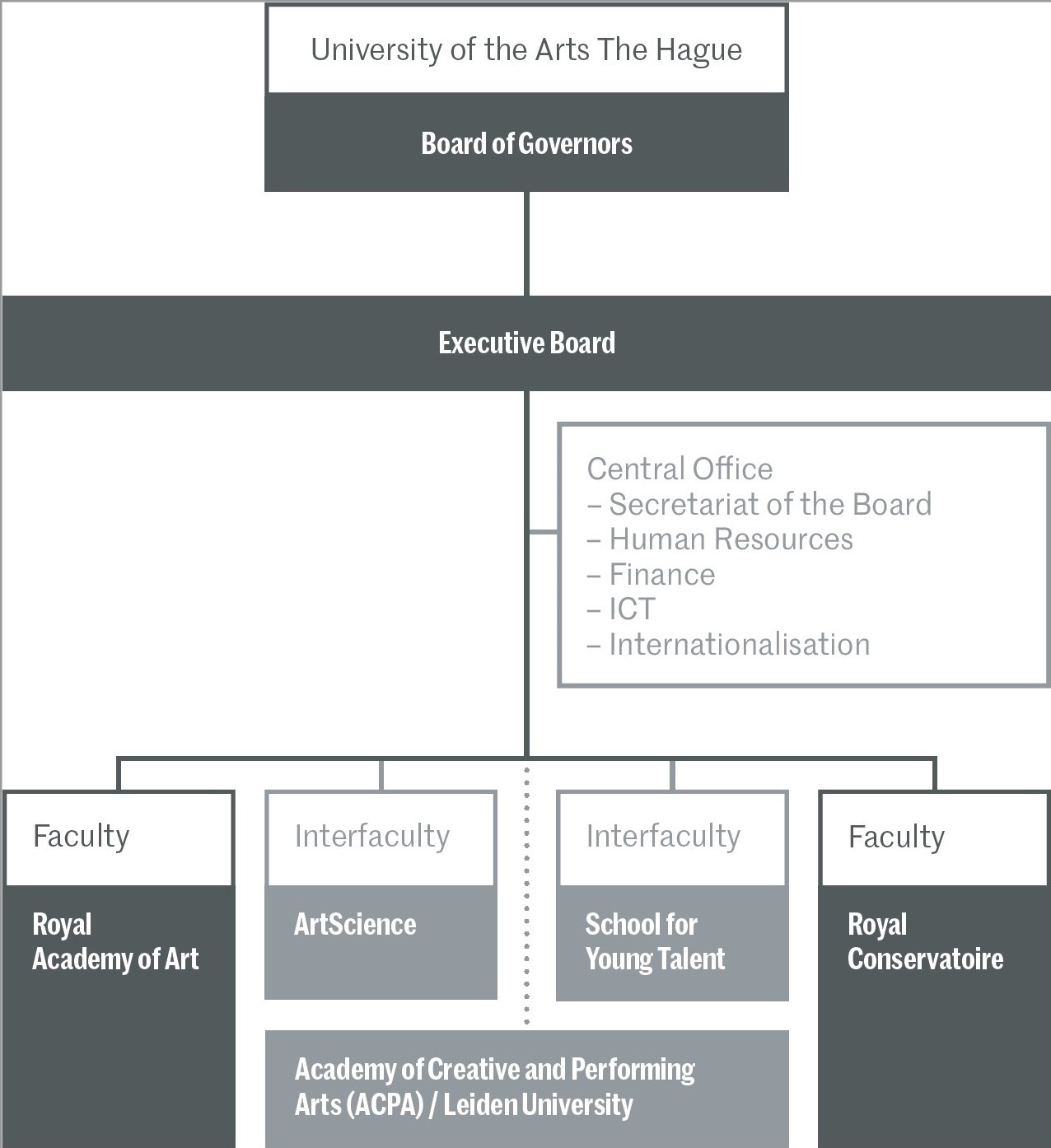The Royal Conservatoire and the Royal Academy of Art merged to form the College of Expressive Arts, Music and Dance on 1 January 1990. In the middle of 2010 the university was renamed the University of the Arts The Hague.
The history of the Royal Academy of Art dates back to 1682 – it is the oldest art academy in the Netherlands and one of the oldest in Europe – and the Royal Conservatoire was founded in 1826 – making it the oldest in the Netherlands. Coinciding with the formation of the University of the Arts in 1990, the two institutes formed a joint Interfaculty for Image and Sound (now ArtScience). This programme immediately underlined the university’s innovative nature. Founded in the 1970s, the School for Young Talent for extremely talented musicians and dancers between the ages of 10 and 18 was expanded to encompass the visual arts soon after 2000.
Curiosity, creativity and independence are the three core values shared by every student at the University of the Arts.
The Royal Conservatoire is the faculty of music and dance and the Royal Academy of Art is the faculty of art and design. The two faculties jointly offer the Interfaculty ArtScience and the School for Young Talent. Both faculties have their own director. They jointly form the Executive Board.
Institutional plan
In the institutional plan of the University of the Arts The Hague for the period 2019 to 2024 we describe the University's ambition and highlight the course we will take to achieve it. Read the institutional plan 2019-2024.
Organisation chart

The Central Bureau of the University of the Arts The Hague reports to the Executive Board. Information for employees of the Royal Academy of Art and the Royal Conservatoire is published on the website of the University of the Arts. Here you will find topics such as personnel policy, governance and supervision, participation, rules of conduct and the ANBI-status (‘institution allocating to the general good’ (in Dutch: ‘algemeen nut beogende instelling’).
Personnel policy
Here you will find information on the hbo-cao, the health and safety plan, as well as contact information of the Personnel and Organisation department (P&O).
Governance and supervision
Here you will find information on the Executive Board, the Supervisory Board, the annual report and financial statements, statutes and regulations, and the Rules of Conduct.
Faculty plan
Here you will find the Faculty plan of the Royal Conservatoire 2019-2020.
Participation
Here you will find information on the Academy Council, University Council
and the Study Programme Committees.
Rules of Conduct
Here you will find information on the Code of Integrity, policies regarding complaints and inappropriate behaviour, and so-called Whistle-blower Regulations.